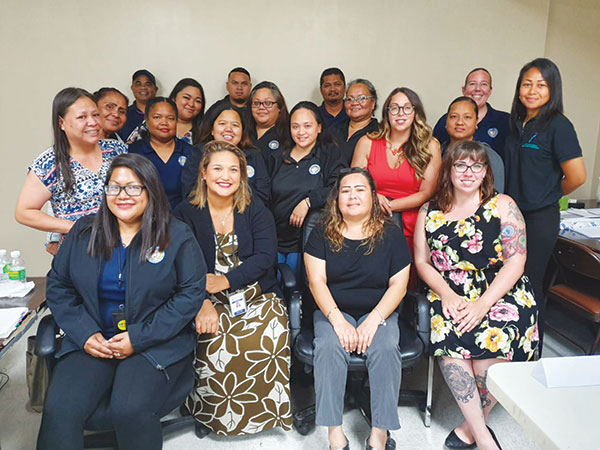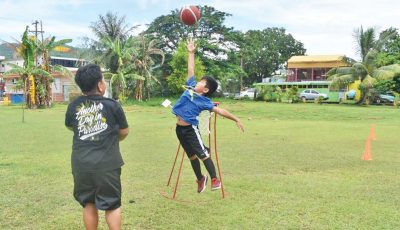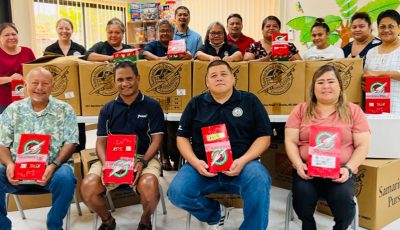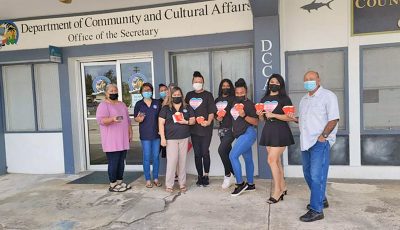DYS workers learn more about interviewing child abuse victims

Participants of the Division of Youth Services, First Witness, and Zero Project forensic interview seminar pose for a picture yesterday at the DYS Office at Chalan Piao. (MARC A. VENUS)
Two experts on what is called forensic interviews are providing case workers and supervisors of the Child Protective Services with more knowledge on interviewing child abuse victims.
The seminar, presided by two members of the First Witness Child Advocacy Center in Duluth, Minnesota, and held at the Division of Youth Services office in Chalan Piao, is intended to provide CPS workers with the knowledge and tools to work efficiently in providing forensic interviews. It started yesterday and will be held throughout this week.
Forensic interviews are interviews where an interviewer gets detailed information about a certain event or encounter that the interviewee experienced. In the CPS’ case, it will be interviews with child abuse victims.
Laura Gapske and Catie Dahl gave insight about the First Witness Child Advocacy’s goal and information about the Zero Abuse Project, which seeks to prevent, recognize, and respond to child sexual abuse.
According to the First Witness website, the organization provides forensic interviews, crisis counseling to children and families, and forensic interview training to social workers, law enforcement officials, county attorneys and others who work with children or investigate child abuse allegations.
A total of 17 participants are taking the seminar (13 from Saipan, two from Rota, and one each from Tinian and the Northern Marianas Coalition Against Domestic & Sexual Violence).
One of the CPS case workers, Benylin Mettao, said this is the second training for a few of the case workers, having attended a similar seminar in 2017 and are aware of what procedures of what must be done in order to provide an effective forensic interview.
She said CPS tries to establish a neutral place where the case worker is able to communicate and create an environment where the child is able to answer questions without feeling like the conversation is leading to the scenario.
“This training aims to show the new staff a direction for a forensic interview,” she said, and that the seminar provides new information that can add on the knowledge that they already have.
According to Gapske, the trainees will learn all the fundamentals to forensically interview children in a sound and non-leading manner, and how to get a reliable statement from a child about what occurred that is about the investigation. Nationally, case workers must get the training every two to three years, she added.
Gapske believes it is a good idea that the CPS supervisors are participating in the seminar as they are informed about the case worker’s information about an investigation and can provide support.
DYS administrator Vivian Sablan informed Saipan Tribune that this is the third time that the seminar has been held for the CPS case workers and supervisors. “We’re doing this [seminar] to provide our staff the necessary tools to perform interviews efficiently,” Sablan said.
She said the recommended number of forensic interviews is one, as more can impact the child’s decision-making.
Gapske and Dahl expect the entirety of the seminar’s participants to be certified this Friday.



























